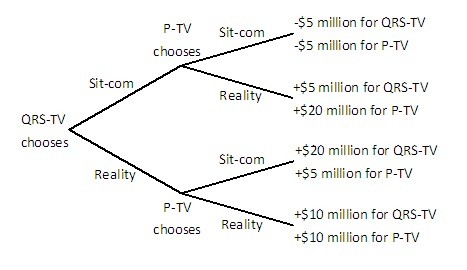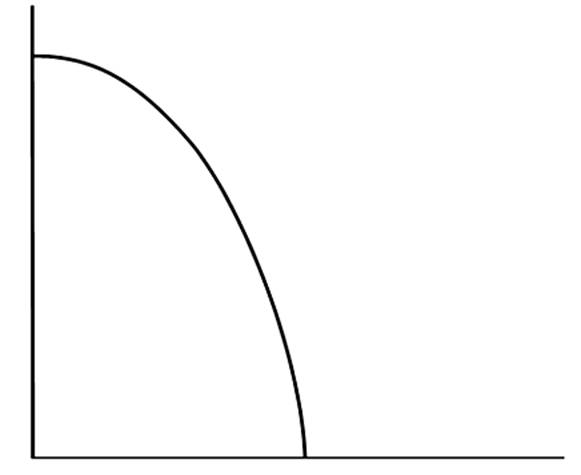Suppose the economy's production function is Y = AK0.3N0.7. If K = 2000, N = 100, and A = 1, then Y = 246. If K and N both rise by 20%, and A is unchanged, by how much does Y increase?
A) 5%
B) 10%
C) 15%
D) 20%
D
You might also like to view...
P-TV and QRS-TV are trying to decide whether to air a sitcom or a reality show in a given time slot. Viewers like both sitcoms and reality shows, but sitcoms are more expensive to produce than reality shows since real actors need to be hired. QRS-TV makes its decision first, and then P-TV observes that choice before making its decision. Both stations know all of the information in the decision tree below.  In the equilibrium of this game:
In the equilibrium of this game:
A. both stations will air sitcoms. B. QRS-TV will air a reality show and P-TV will air a sitcom. C. both stations will air reality shows. D. QRS-TV will air a sitcom and P-TV will air a reality show.
Place point Q on the graph to indicate an unemployment rate of 100 percent, point R to indicate full employment and point S to indicate where the United States economy usually operates.
